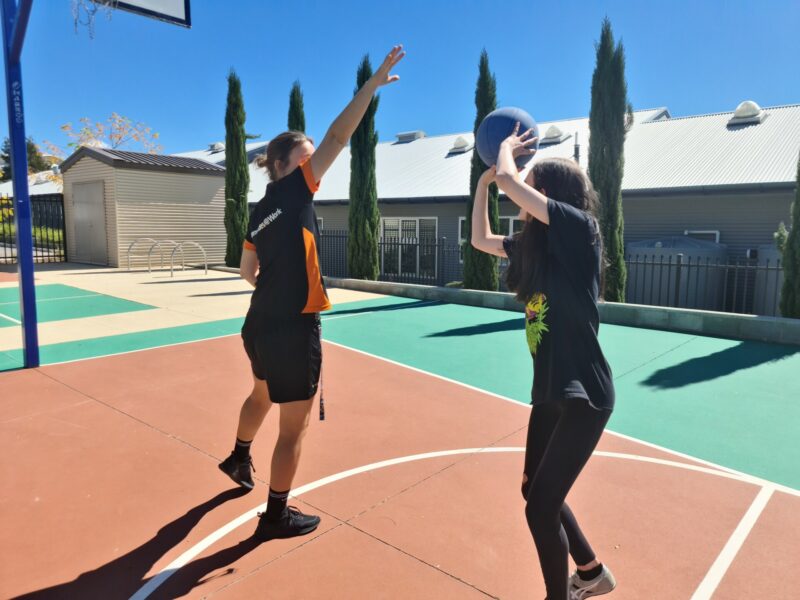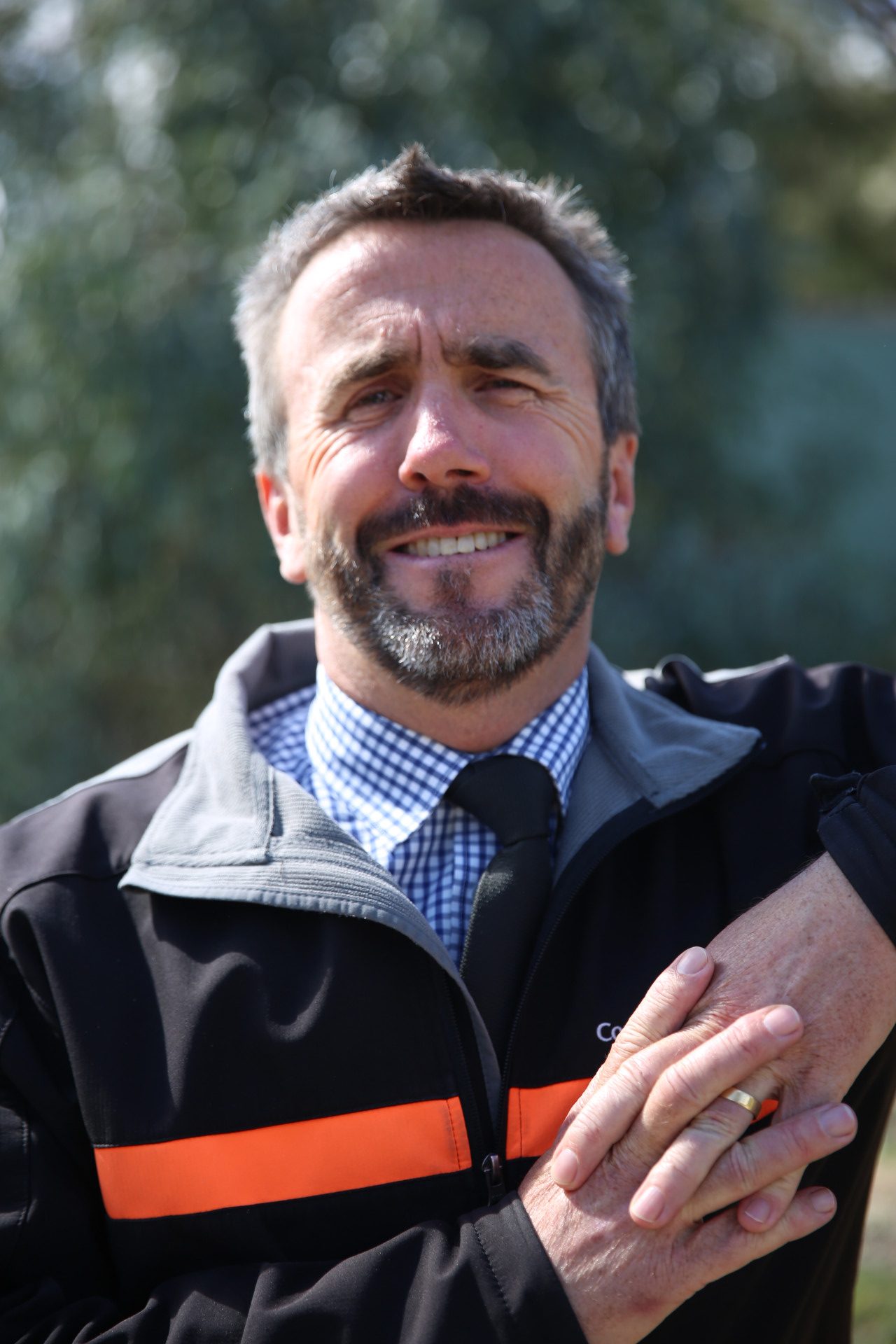Principal’s trauma-informed approach to teaching kids and building trust
Published By Grant Quarry, April 27 2022, Education HQ Magazine

By any measure, your average school day at Galilee School in the ACT is anything but orthodox. For starters, it’s a four-hour day split into four learning periods and four extended break periods.
But then there’s nothing average about this extraordinary little school of 85 students and 35 staff, including teachers, youth workers, learning support assistants and support staff.
“We’re what’s known as a ‘special assistance school’… and the classification… exists in recognition of the fact that for some young people, their social and emotional needs are probably primary in terms of their developmental journey,” principal Tim McNevin says.
“The complexities of life, and the impact of some of the experiences that they’ve endured up until now means that they nd it very difficult to comply with and engage positively with the expectations of mainstream schools.”
The school’s approach is to understand each young person, to get to know each of them and what their particular challenges are, what their particular story is, and then to respond as best it can to what it learns about them. Trauma is the common link – whether it be in utero, intergenerational, or an ongoing occurrence in the young person’s life, and from various stages from birth through to present times.
“So much of our practice is trauma-informed,” McNevin says. “And that’s about understanding those things that challenge a young person, and then responding appropriately.
“So a young person who’s affected by trauma quite often has a mistrust of people in authority, or has a mistrust of people broadly, and so, as an example, one of our key focuses is on relationships and trust, and doing that deliberately and purposefully early on in the young person’s journey, so that those trusting relationships can be established, and therefore we can have influence in their life.”
And then, McNevin says, staff can have engagement, or can request engagement from the young person. “To do the inverse, puts all the pressure on the young person, comply, comply, comply, without dealing with those underlying issues that the young person has about trust and trusting relationships,” he says.
The four extended breaks, then, across the school day are a critical part of this strategy. The break periods are very specifically designed – they’re longer in duration [because] it’s during those times that relationship building happens, those incidental conversations that you have side by side with a young person while playing basketball with a young person, or while eating with a young person.
“That’s where those relationships get established. And we’re very deliberate about that.”
Students at the school come from all walks of life – and every socio-economic demographic, with some suffering anxiety, others ADHD, perhaps oppositional
defiance disorder, and more. “There’s nothing generic about our young people,” McNevin says. The factors that affect these young people, no one’s immune…”

Galilee School Principal Tim McNevin (pictured) says Galilee School’s approach is to understand each young person, to get to know each of them and what their particular challenges are, what their particular story is, and then to respond as best it can to what it learns about them.
The engaging school leader’s career trajectory has been equally unorthodox as his school’s methods and approaches. Beginning 20 years ago as a casual TAFE Hospitality teacher, following ten years in the industry, he spent time in the AEU in various roles, and a good deal of time building a network of school teachers who were supporting young people in their vocational learning and career pathways.
Following a period as deputy executive director for the Association of Independent Schools for the ACT, the principal position came up at Galilee and eager for a new, more ‘coalface’ type role, McNevin threw his hat in the ring. That day-to-day, face-to-face, real-time, real people experience drew him in like a moth to a flame. “It’s that equipping and empowering and assisting everybody to understand what is their potential, and how can we release that potential in a really positive and nurturing way? That really floats my boat,” he says.
As a man of faith, McNevin genuinely believes in the good that exists in people. “My view is to provide an environment where that good can be best released – and there’s a nurturing element to that, there’s a coaching element to that – but there’s also an empowering element to that,” he says.
“So we’re pretty focused on helping staff work in their area of passion and strength, and we’ll shape very often the curriculum offerings in the school in response to that. “So rather than ask a staff member to teach in an area that they’re unenthusiastic about, less experienced in or not passionate about, we say, ‘what are you interested in, experienced in and passionate about, and how can we enable you to deliver that in our school?’
“And so that strength-based approach to staff is a key element of our approach here in the school, and that’s led to pretty good retention.”
Last year Galilee began expansion into Years 11 and 12, largely due to a concern that while students were re-conceptualising themselves as learners and wanted to continue with learning when they returned to their mainstream settings post-Year 10, they weren’t finding that success. They were dropping out.
“There was a compelling moral reason for us to say, ‘this is unfinished business for those young people, we need to be developing them a little bit more, we need to nurture them a little bit more, we need to equip them a little bit more,” McNevin says.
So far signs are good that the extra few years spent at Galilee during such a pivotally the developmental stage of students’ school life is shaping to be hugely successful. But what does success mean in this independent school setting? “I’d say that many young people arrive at Galilee School with a very negative opinion of themselves, and the absence of hope for the future, and if we can recalibrate their opinion of themselves – that ‘I can learn’, that ‘I can be successful’, and ‘I can look to the future with hope’, and they can see themselves on a pathway towards that future, then that’s an incredibly privileged position for us to hold in that young person’s life and to be a part of.
“That would certainly look like success for each individual, and it’s that individual the success that matters most to us.” Success for McNevin also includes the buoyant morale of his staff. “The number of them who genuinely come to me unprovoked to say, ‘You know what, I love working here, we are doing really good stuff. And I feel alive as a teacher, you know?’ That’s an absolute privilege. And that’s happening a lot.”
While you get the feeling that the principal is a big fan of his employed personnel, he also describes the students in his care – to them, and to anybody who’ll listen – as heroes. “They are overcoming adversity that I can only dream of – and they do it on a daily basis in many cases,” he says. “So for them to do that continually, and to trust us, and to take chances, because of the trust they have in us, and then move towards this future that was opaque when they arrived, but gains clarity as they spend time with us – that’s amazing.”
This story appeared in the March 2022 edition of Australian Teacher Magazine.
